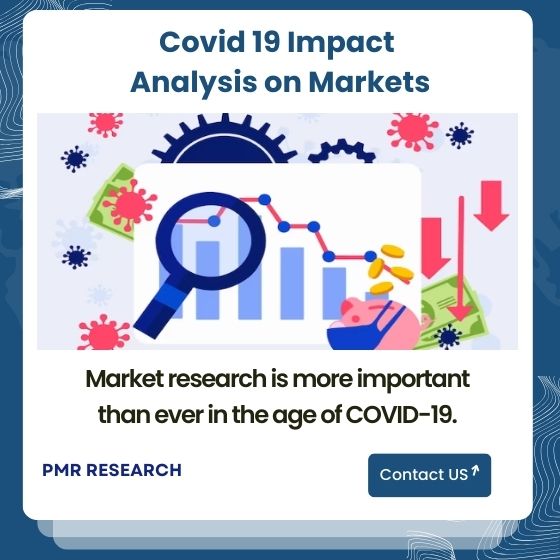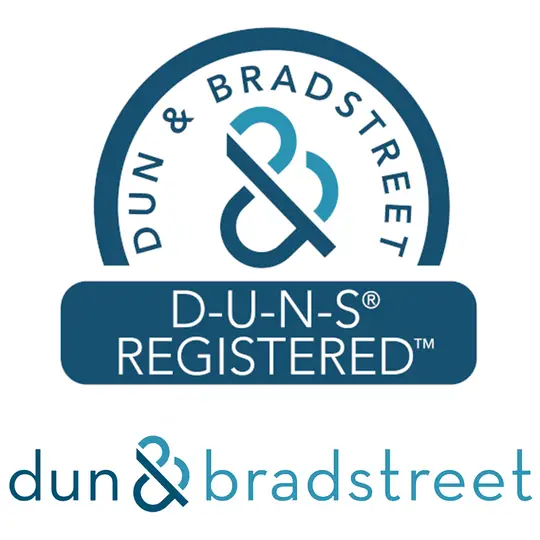
Somatostatin Analogs Market, By Product (Wheeled and Tracked), By Application (Ground Maintenance, Construction, and Agricultural), By Region (North America, Europe, Asia Pacific and RoW) ? Analysis, Share, Trends, Size, & Forecast From 2017 ? 2028


Market Executive Summary
REPORT HIGHLIGHT
The Somatostatin Analogs market is estimated to represent a global market of USD 2.40 billion by 2017 with growth rate of 3.0%.
Market Dynamics
Somatostatin analogs are considered to be the first line of treatment in conditions such as carcinoid syndrome, acromegaly, Cushing syndrome and others. These analogues act by inhibiting production of growth hormones and serotonin. The global somatostatin analogs market is driven by an increasing incidence rate of acromegaly and neuroendocrine tumors. For instance, as per the CureResearch, the prevalence of acromegaly in China was estimated to over 50,000 and is expected to increase in future. Furthermore, rising awareness, training and education by Pituitary Association of Australia and UK & Ireland Neuroendocrine Tumour Society is likely to have positive impact on the industry growth. However, high costs associated with the treatment coupled with strict reimbursement policies is expected to hamper the growth. The huge investments involved in developing somatostatin products is also resulting in reduction in number of companies investing in this market, restraining the market growth to some extent.
Analog Type Takeaway
Within the analogs type segment, octreotide (sandostatin) accounted for highest market share. The market for octreotide was over USD 1.5 billion. The drug was marketed by Novaritis in North America, Europe and many other developing countries worldwide. The patent for octreotide (Sandostatin LAR) was expired in the U.S. (2014), resulting in generic competition. Rising popularity of Lanreotide (Somatuline) in the developed regions is anticipated to fuel the industry growth. Rising penetration coupled with the increasing usage of somatuline for carcinoid syndrome is projected to generate lucrative growth opportunity for this market in future. The neuroendocrine segment is expected to grow with a fastest CAGR owing to the rising incidence rate of neuroendocrine tumors.
Regional Takeaway
North America held 45% of market share. Growth of this region is majorly attributed to the rising cases of acromegaly and neuroendocrine tumor. In addition, rising awareness and increased accuracy of diagnosis in developed economies created a positive outlook for the acceptance of somatostatin analogs in the region. Furthermore, presence of favorable reimbursement schemes and increasing research and development activities establish healthy platform for this industry growth.
On contrary, Asia Pacific is expected to exhibit a fastest CAGR over the forecast period. Increased in research and development and launch of innovative formulation are the main factor driving the growth over the study period. For instance, Sun Pharma introduced somatostatin analogs product which can be indicated for the treatment of acromegaly.
Key Vendor Analysis
The global industry is consolidated in nature, where, few number of companies accounted for the significant revenue share. Companies namely IPSEN and Novartis AG dominated the global market with over 80% of revenue share. Novartis?s new product Signifor and Signifor LAR is gaining momentum in the U.S. and Europe countries. This product exhibits better affinity for somatostatin receptor 5 and also has longer half-life compared to octreotide which is anticipated to help the company in keeping its leading position in future.
The market size and forecast for each segment and sub-segments has been considered as below:
Historical Year ? 2017 ? 2021
Base Year ? 2021
Estimated Year ? 2022
Projected Year ? 2028
TARGET AUDIENCE
Traders, Distributors, and Suppliers
Manufacturers
Government and Regional Agencies
Research Organizations
Consultants
Distributors
SCOPE OF THE REPORT
The scope of this report covers the market by its major segments, which include as follows:
MARKET, BY ANALOG TYPE
Octreotide
Lanreotide
Pasireotide
MARKET, BY INDICATION
Acromegaly
Neuroendocrine Tumor (NET)
Others
MARKET, BY REGION
North America
U.S.
Canada
Europe
Germany
France
Rest of Europe
Asia Pacific
India
China
Rest of APAC
Rest of the World
Middle East and Africa
Latin America
Table of Contents
TABLE OF CONTENT
1. SOMATOSTATIN ANALOGS MARKET OVERVIEW
1.1. Study Scope
1.2. Assumption and Methodology
2. EXECUTIVE SUMMARY
2.1. Key Market Facts
2.2. Geographical Scenario
2.3. Companies in the Market
3. SOMATOSTATIN ANALOGS KEY MARKET TRENDS
3.1. Market Drivers
3.1.1. Impact Analysis of Market Drivers
3.2. Market Restraints
3.2.1. Impact Analysis of Market Restraints
3.3. Market Opportunities
3.4. Market Future Trends
4. SOMATOSTATIN ANALOGS INDUSTRY STUDY
4.1. Porter?s Analysis
4.2. Market Attractiveness Analysis
4.3. Regulatory Framework Analysis
5. SOMATOSTATIN ANALOGS MARKET LANDSCAPE
5.1. Market Share Analysis
6. SOMATOSTATIN ANALOGS MARKET ? BY ANALOG TYPE
6.1. Overview
6.1.1. Overview
6.1.2. Market Analysis, Forecast, and Y-O-Y Growth Rate, 2017 ? 2028, (US$ Billion)
6.2. Octreotide
6.2.1. Overview
6.2.2. Market Analysis, Forecast, and Y-O-Y Growth Rate, 2017 ? 2028, (US$ Billion)
6.3. Lanreotide
6.3.1. Overview
6.3.2. Market Analysis, Forecast, and Y-O-Y Growth Rate, 2017 ? 2028, (US$ Billion)
6.4. Pasireotide
6.4.1. Overview
6.4.2. Market Analysis, Forecast, and Y-O-Y Growth Rate, 2017 ? 2028, (US$ Billion)
7. SOMATOSTATIN ANALOGS MARKET ? BY INDICATION
7.1. Overview
7.1.1. Overview
7.1.2. Market Analysis, Forecast, and Y-O-Y Growth Rate, 2017 ? 2028, (US$ Billion)
7.2. Acromegaly
7.2.1. Overview
7.2.2. Market Analysis, Forecast, and Y-O-Y Growth Rate, 2017 ? 2028, (US$ Billion)
7.3. Neuroendocrine Tumor (NET)
7.3.1. Overview
7.3.2. Market Analysis, Forecast, and Y-O-Y Growth Rate, 2017 ? 2028, (US$ Billion)
7.4. Others
7.4.1. Overview
7.4.2. Market Analysis, Forecast, and Y-O-Y Growth Rate, 2017 ? 2028, (US$ Billion)
8. SOMATOSTATIN ANALOGS MARKET? BY GEOGRAPHY
8.1. Introduction
8.2. North America
8.2.1. Overview
8.2.2. Market Analysis, Forecast, and Y-O-Y Growth Rate, 2017 ? 2028, (US$ Billion)
8.2.3. U.S.
8.2.3.1. Overview
8.2.3.2. Market Analysis, Forecast, and Y-O-Y Growth Rate, 2017 ? 2028, (US$ Billion)
8.2.4. Canada
8.2.4.1. Overview
8.2.4.2. Market Analysis, Forecast, and Y-O-Y Growth Rate, 2017 ? 2028, (US$ Billion)
8.3. Europe
8.3.1. Overview
8.3.2. Market Analysis, Forecast, and Y-O-Y Growth Rate, 2017 ? 2028, (US$ Billion)
8.3.3. France
8.3.3.1. Overview
8.3.3.2. Market Analysis, Forecast, and Y-O-Y Growth Rate, 2017 ? 2028, (US$ Billion)
8.3.4. Germany
8.3.4.1. Overview
8.3.4.2. Market Analysis, Forecast, and Y-O-Y Growth Rate, 2017 ? 2028, (US$ Billion)
8.3.5. Rest of Europe
8.3.5.1. Overview
8.3.5.2. Market Analysis, Forecast, and Y-O-Y Growth Rate, 2017 ? 2028, (US$ Billion)
8.4. Asia Pacific (APAC)
8.4.1. Overview
8.4.2. Market Analysis, Forecast, and Y-O-Y Growth Rate, 2017 ? 2028, (US$ Billion)
8.4.3. China
8.4.3.1. Overview
8.4.3.2. Market Analysis, Forecast, and Y-O-Y Growth Rate, 2017 ? 2028, (US$ Billion)
8.4.4. India
8.4.4.1. Overview
8.4.4.2. Market Analysis, Forecast, and Y-O-Y Growth Rate, 2017 ? 2028, (US$ Billion)
8.4.5. Rest of APAC
8.4.5.1. Overview
8.4.5.2. Market Analysis, Forecast, and Y-O-Y Growth Rate, 2017 ? 2028, (US$ Billion)
8.5. Rest of the World
8.5.1. Overview
8.5.2. Market Analysis, Forecast, and Y-O-Y Growth Rate, 2017 ? 2028, (US$ Billion)
8.5.3. Latin America
8.5.3.1. Overview
8.5.3.2. Market Analysis, Forecast, and Y-O-Y Growth Rate, 2017 ? 2028, (US$ Billion)
8.5.4. Middle East and Africa
8.5.4.1. Overview
8.5.4.2. Market Analysis, Forecast, and Y-O-Y Growth Rate, 2017 ? 2028, (US$ Billion)
9. KEY VENDOR ANALYSIS
9.1. Novartis
9.1.1. Company Overview
9.1.2. SWOT Analysis
9.1.3. Key Developments
9.2. Peptron
9.2.1. Company Overview
9.2.2. SWOT Analysis
9.2.3. Key Developments
9.3. Chiasma, Inc.
9.3.1. Company Overview
9.3.2. SWOT Analysis
9.3.3. Key Developments
9.4. IPSEN Biopharmaceuticals, Inc.
9.4.1. Company Overview
9.4.2. SWOT Analysis
9.4.3. Key Developments
9.5. Sun Pharma
9.5.1. Company Overview
9.5.2. SWOT Analysis
9.5.3. Key Developments
10. 360 DEGREE ANALYSTVIEW
11. APPENDIX
11.1. Research Methodology
11.2. Abbreviations
11.3. Disclaimer
11.4. Contact Us
List of Figures
List of Figures
Figure 1 Research Methodology
Figure 2 Research Process Flow Chart
Figure 3 Comparative Analysis, by Geography, 2017-2028 (Value %)
Figure 4 Value Chain Analysis
Figure 5 Somatostatin Analogs Market, by Analog Type, 2017 ? 2028 (USD Billion)
Figure 6 Somatostatin Analogs Market, by Indication, 2017 ? 2028 (USD Billion)
Figure 7 Somatostatin Analogs Market, by Geography, 2017 ? 2028 (USD Billion)

This report focuses on:
► Intelligent insights to take informed business decisions.
► Qualitative and quantitative analysis of the market.
► Market size and forecasts from 2024 to 2030.
► Opportunities for expansion and in-depth market analysis.
► Segmentation and regional revenue forecasts.
► Analysis of the market share and competitive landscape.
► Strategic recommendations for future growth.
You'll also receive:
► A comprehensive market research report in PDF or PPT formats.
► Access to our analysts to learn more about the report and get answers to your specific business questions.
► The option to customize the report to meet your specific needs, such as adding more countries or regions or developing abusiness case to launch a new product.


